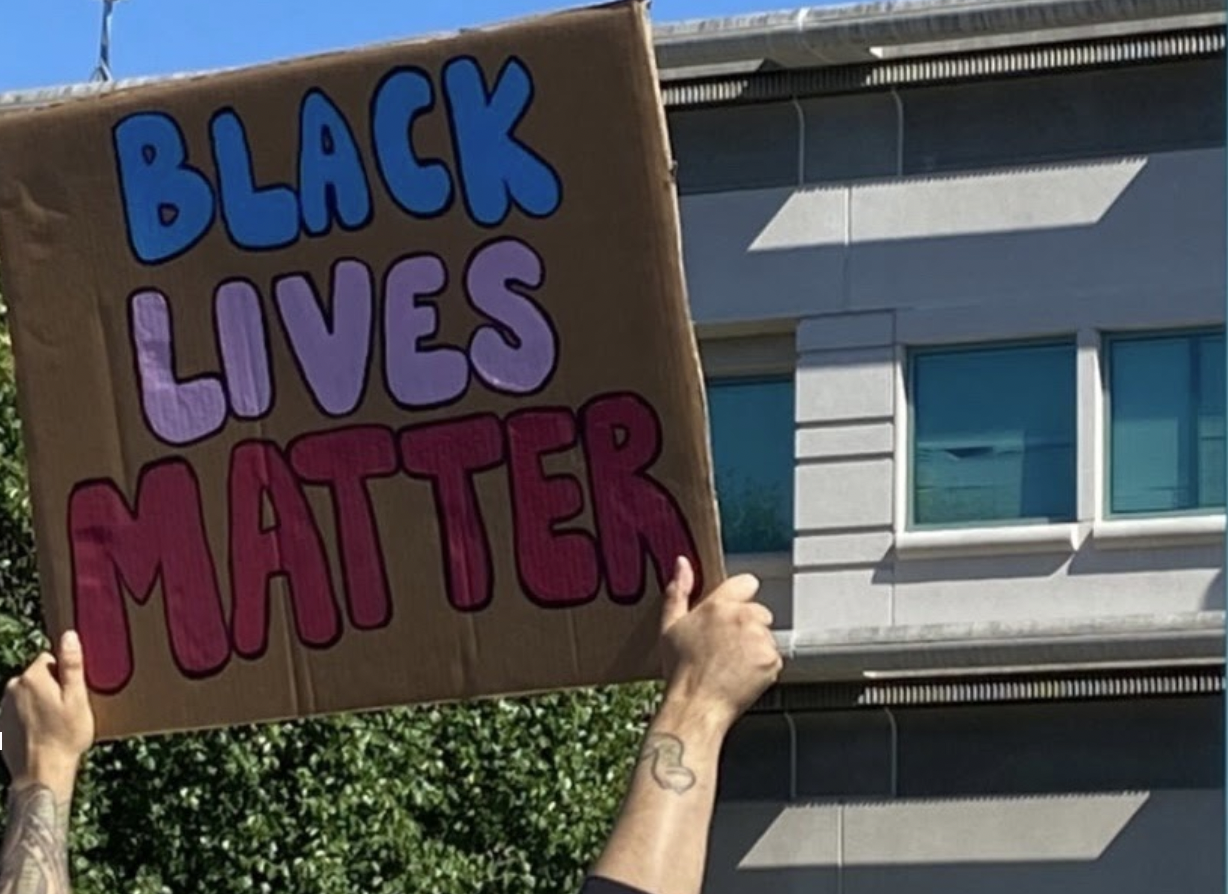Images provided by author, NBC Bay Area, and Mercury News.
In June of 2020, at the peak of the Black Lives Matter movement, a peaceful protest at the Fremont Police Department sparked change. A month later, the department met with stakeholders and community members for a week to discuss how Fremont can be more transparent in its policing.
An anonymous senior here at Washington says, “I haven’t heard anything about police brutality in Fremont specifically.” But in reality, Fremont scored 45 out of 100 on policescorecard.org, an organization that rates police departments based on their policing, use of force, ability to hold fellow officers accountable, and number of arrests for low-level offenses. In 2018, a man named Shacory Daniels alleged that Fremont police officers used excessive force while arresting him as a suspect for burglary. Unarmed and posing no threat to the police, Daniels was shot in the leg by officers.
I asked that same anonymous senior whether they believe defunding the police is a realistic option for managing corruption and brutality. “I think that it’s tricky,” they say. “People don’t realize what [defunding the police] means. ‘Oh you’re just getting rid of the police entirely!’ But they don’t realize that it means creating other programs.” Mr. Macleod, the AP Economics and Government teacher here at Washington, echoed the same thoughts. He agrees with the concept of defunding the police, but wouldn’t use the word “defunding” to describe it. He says, “It’s a good idea, but the language is off. I’d call it reforming the police.”


But where would those funds be redirected? “The things that police shouldn’t have to handle—mental health, psychiatrics, and other programs to solve crises.” Fremont has other problems, such as homelessness, poverty, and a lack of mental health programs. Maybe those places deserve the funds.
One such program, the Housing Navigation Center of Fremont, reports that “in its first six months of operations, none of its participants have returned to homelessness.” Being on the street has a correlation with crime and likelihood to be arrested, so maybe Fremont should start by increasing investment into these effective programs. Some supporters of defunding the police believe that poverty is the root cause of crime, and that by tackling those issues, the police wouldn’t need as much money.
According to The Mercury News, Fremont spends roughly $96.5 million dollars on its police budget annually, a whopping 48% of the city’s entire general funding. Meanwhile, a fraction of that budget is allocated towards poverty assistance, homeless shelters, and other necessities.
Whether defunding the police is a viable option or not, the status quo must change. Thankfully, Fremont PD is taking some steps to improve. But the root of the problem is yet to be addressed.
Renée Diop has spent all four years here at Washington, but before moving here, she grew up in the Midwest, in Chicago, Illinois. This is her first year writing for The Hatchet, exploring topics in the arts, entertainment, and controversial breaking news fields. Her hobbies include teaching debate to novice members as the captain of the team, listening to all genres of music (except country), and reading philosophy. She plans to major in psychology in college and pursue a career in writing.

